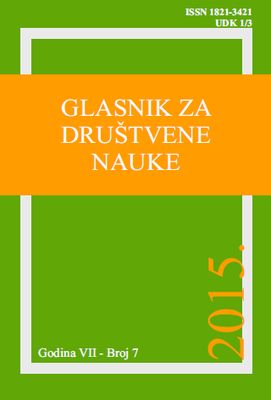JEZIK KAO SREDSTVO IDENTIFIKACIJE S POSEBNIM OSVRTOM NA MAĐARE U VOJVODINI
Language as means of identification with a particular emphasis on Hungarians in Vojvodina
Author(s): Klara Toth GlembaSubject(s): Sociolinguistics, Finno-Ugrian studies, Developing nations, Politics and society
Published by: АЛФА БК УНИВЕРЗИТЕТ
Keywords: Language; identity; ethnic minorities; Hungarians; legal regulation
Summary/Abstract: Language as means of identification is one of the mightiest bases of differentiation among people and nations, therefore among Hungarians in Vojvodina too. By using freely their mother tongue, nations maintain their own culture, actively acquire the culture of other nations, and at the same time continue to use the abundance of their own cultural heritage, which is, in our case, a precondition for preserving national identity. However, in a multilingual state free use of language, both for personal and public use, public broadcasting services and mother-tongue based education, must be legally regulated. Therefore, it gains importance, not only as an individual but also as a collective right, whose use is one of the important factors for keeping members of one ethnical group connected and preserving their own identity. The community of Hungarians in Vojvodina is mostly bilingual. It means that along with their native language they usually speak the majority language – Serbian. The mutual influence of languages is inevitable and it results in so-called Vojvodina Hungarian language, which is slightly different from the language in their motherland.
Journal: Glasnik za društvene nauke
- Issue Year: 2015
- Issue No: 7
- Page Range: 113-134
- Page Count: 22
- Language: Serbian

